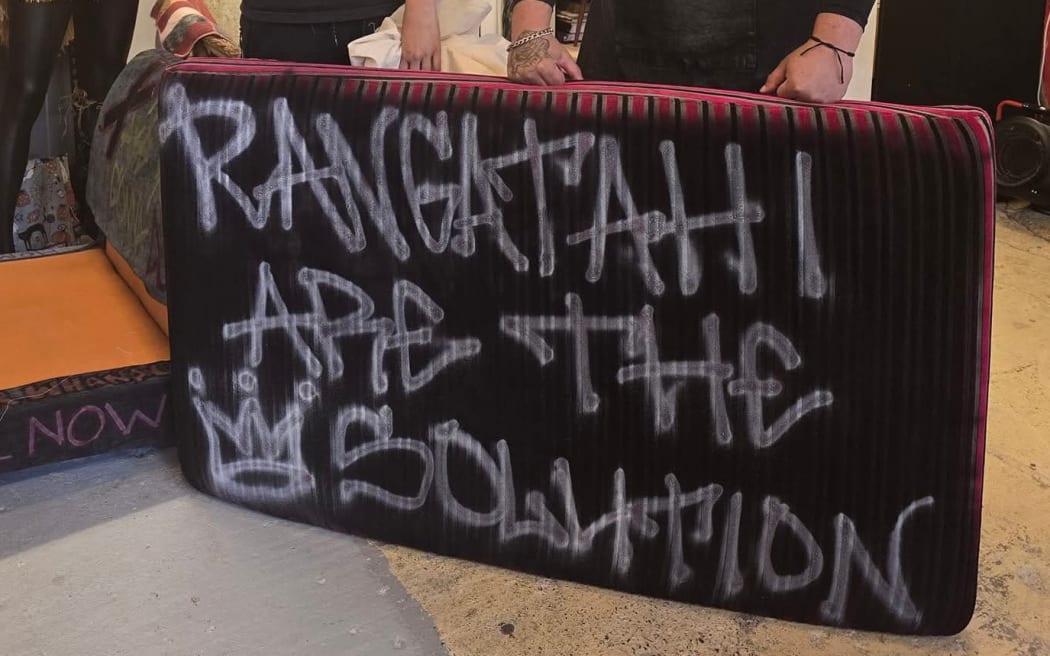Lifestyle
Youth Collective Demands Housing Justice on World Homeless Day

A youth homelessness collective known as Manaaki Rangatahi is calling for urgent action on housing rights in Aotearoa as part of its observance of World Homeless Day. On March 10, 2023, the group is set to host a youth-led event in Manukau, focusing on the theme “A safe and secure home is a home.” This initiative aims to highlight the ongoing struggle against youth homelessness and the need for comprehensive solutions.
The collective has outlined six key actions it urges all political parties to adopt. These calls include not only guaranteeing the right to a healthy home but also advocating for increased investment in youth housing and a robust strategy to address youth homelessness. According to Bianca Johanson, the collective’s chief executive, there is a pressing need for Aotearoa to commit to these principles.
In a statement to RNZ, Johanson expressed her frustration regarding the national response to youth homelessness, noting, “What aggravates me is that in this country, and it’s seen in a lot of countries, we do not really care about our rangatahi.” She emphasized that addressing youth homelessness could significantly impact overall homelessness rates. “There’s no reason apart from dollars as to why we can’t, especially when it comes to our young people.”
Johanson highlighted that the purpose of the World Homeless Day kaupapa is to provide young people with a platform to share their experiences and aspirations publicly. “There’s no other place for them to do that in a public forum,” she said. The theme reflects the reality that homelessness is not confined to urban centers but extends to communities across Aotearoa, including South Auckland.
The collective is advocating for a national stance on housing rights and poverty reduction. Johanson stated, “We haven’t taken a stand as a country on the right to housing. We’re not clear about where we sit, and there’s no plan to get out of it.” She explained that many young people involved with the collective leave unsafe homes or state care, not out of rebellion but out of necessity for survival.
“Most of our rangatahi are leaving situations where there’s been abuse of some kind and their homes have become very unsafe,” Johanson noted. She pointed out that young people have aspirations for their futures but face discrimination and systemic barriers. “It’s very difficult when you’re discriminated against because you’re young, because you’re Māori, because you’re from an oppressed or marginalized community that constantly faces barriers.”
Johanson criticized punitive policies like benefit sanctions that hinder young people’s ability to achieve stability. She explained that current welfare requirements often mandate a minimum of 30 hours of work per week, which can penalize those who are unable to meet this threshold. “It’s punishing people who are poor, and a lot of that is our people,” she added.
Instead of punitive measures, Johanson believes government agencies should focus on creating opportunities for young people. “Why doesn’t MSD have internships for our young people so they can get experience?” she asked. “If you’re going to put sanctions on them, then hire them. Give them a job. Give them a year of work experience and subsidize their wage… That would benefit everyone.”
The collective advocates for youth-specific, culturally informed support rather than one-size-fits-all policies. Johanson emphasized that “rangatahi are treated no different from everybody else, but they have very specific needs… cultural needs, developmental needs.” She believes communities should rally behind young people, offering support and pathways to success rather than despair.
Johanson encourages New Zealanders to engage in discussions about youth homelessness and its root causes. “If people are in spaces where they have influence, then talk about rangatahi homelessness… because you’ll probably be the only one in the room who does,” she remarked. She concluded, “If we prevent and end youth homelessness, we can end homelessness altogether.”
In response to these calls for action, Tama Potaka, Associate Minister of Housing responsible for homelessness, issued a statement affirming the government’s commitment to helping young people avoid homelessness. He noted that the government is considering long-term measures alongside current supports to address the issue.
Potaka acknowledged the complexity of homelessness among young people, indicating that a system-wide approach is often necessary. “A system-wide approach is often required, focusing on issues like income, employment, health, disability, and housing services and supports,” he stated. The government has allocated over $550 million for youth transitional housing and additional supports for the 2024/25 and 2025/26 fiscal years, including $100 million over four years to alleviate social housing pressures.
He encourages any young person experiencing homelessness to reach out to the Ministry of Social Development (MSD) through their Youth Service for support in education, training, and employment. A spokesperson from the minister’s office confirmed that an additional $17 million has been invested this year to assist individuals living without shelter, which includes funding for social homes and support for those at risk of homelessness.
The government is committed to improving outcomes for those facing homelessness, including young people, and aims to create a housing system that is fair and responsive to the needs of the community.
-

 Top Stories1 month ago
Top Stories1 month agoCommunity Mourns Teens Lost in Mount Maunganui Landslide
-

 Entertainment6 months ago
Entertainment6 months agoTributes Pour In for Lachlan Rofe, Reality Star, Dead at 47
-

 World3 months ago
World3 months agoPrivate Funeral Held for Dean Field and His Three Children
-

 Top Stories3 months ago
Top Stories3 months agoFuneral Planned for Field Siblings After Tragic House Fire
-

 Sports6 months ago
Sports6 months agoNetball New Zealand Stands Down Dame Noeline Taurua for Series
-

 Entertainment1 month ago
Entertainment1 month agoJulian Dennison Ties the Knot with Christian Baledrokadroka in New Zealand
-

 Entertainment5 months ago
Entertainment5 months agoNew ‘Maverick’ Chaser Joins Beat the Chasers Season Finale
-

 Sports6 months ago
Sports6 months agoSilver Ferns Legend Laura Langman Criticizes Team’s Attitude
-

 Sports4 months ago
Sports4 months agoEli Katoa Rushed to Hospital After Sideline Incident During Match
-

 Sports4 months ago
Sports4 months agoAll Blacks Star Damian McKenzie and Partner Announce Baby News
-

 Sports3 months ago
Sports3 months agoNathan Williamson’s Condition Improves Following Race Fall
-

 Politics5 months ago
Politics5 months agoNetball NZ Calls for Respect Amid Dame Taurua’s Standoff





















